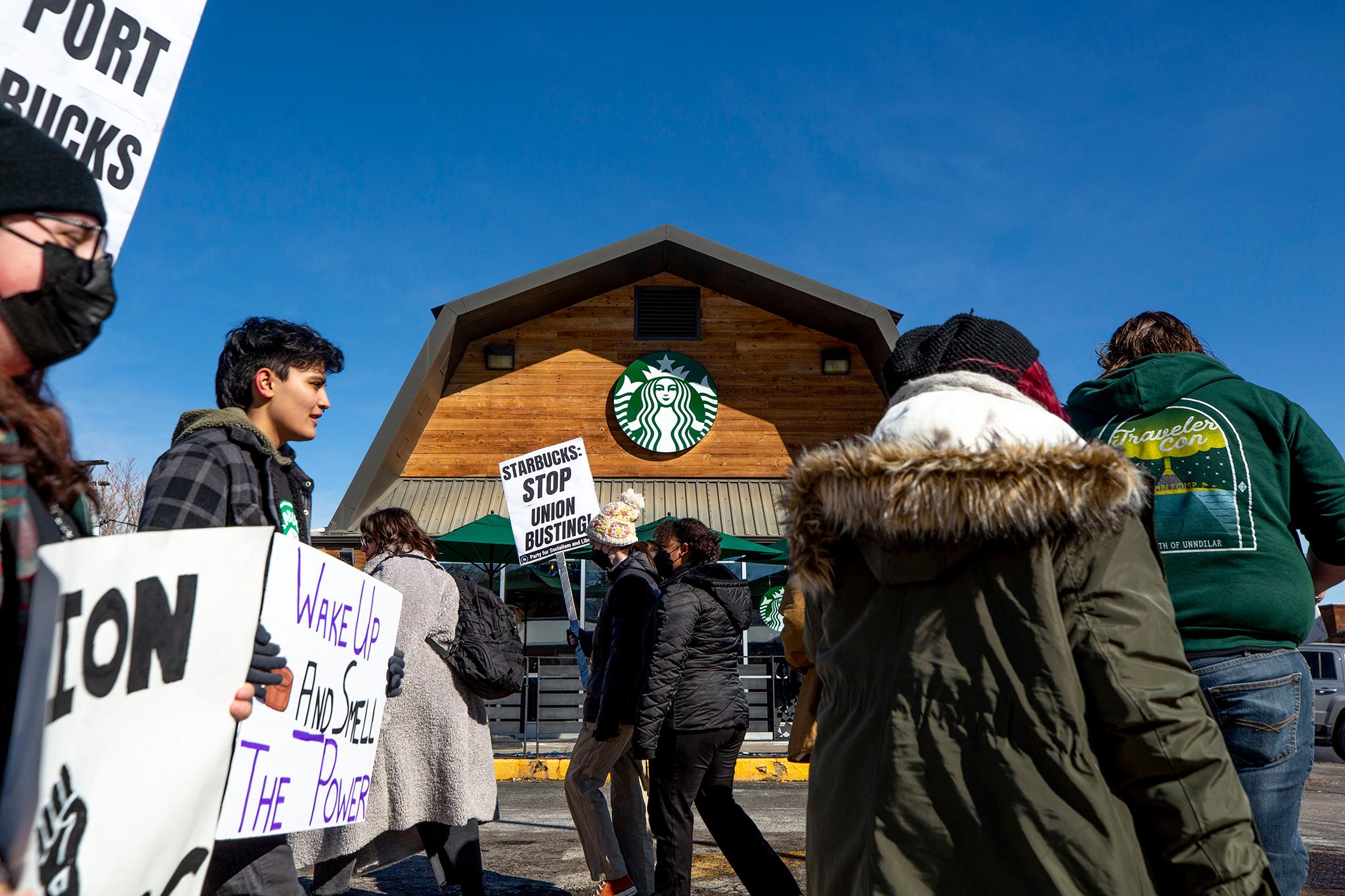Workers at the Starbucks on East Colfax Avenue and Milwaukee Street could have their union election results overturned if a complaint filed by the company passes the muster of federal labor officials.
In paperwork filed with the National Labor Relations Board in mid-May, the company accused employees of violating federal labor laws during a strike held outside the shop ahead of the election. The NLRB is now reviewing the case and could order a re-do if it deems the concerns valid.
If successful, it would be the first win by the company in a challenge to the growing number of union elections at Starbucks stores across the state. So far, five stores in Colorado, including "The Barn" on East Colfax, have voted to organize alongside dozens of other stores around the country.
Starbucks hasn't challenged the results from any of the four other stores. Two more in the state are still voting.
Pro-union workers at the East Colfax shop say the company's complaint is baseless and they plan to move ahead with bargaining.
"We are not deterred," said Michaela Sellaro, a shift supervisor and union organizer at the store. "It certainly won't stop us from coming to the table in good faith as soon as possible, knowing that this is a woefully transparent delay tactic."
The strike in question occurred on March 11 -- several weeks before workers began voting on whether to form a local chapter of the massive Service Workers International Union.
That morning, a group of baristas walked off the job in protest of what they described as anti-union meetings that managers were holding with staff. A group of about 30 workers and supporters stood outside the store, chanting and holding signs for several hours.
According to a letter written by Starbucks' regional vice president Andrea Streedain, some participants "physically intimidated customers and other partners, including by blocking the entrance to the store." The letter, which was sent to baristas following the strike, was shared with Denverite.
The letter goes on to state that "individuals also swung picket signs at the windshield of customers' cars and reportedly booed and yelled obscenities at customers as they were entering and leaving the drive-through."
The strike intimidated employees who weren't supportive of the union drive and violated federal laws around organizing, according to the company's May complaint. Starbucks said the demonstration chilled anti-union employees and discouraged them from voting in the election, which wrapped up on May 10.
Out of 23 eligible baristas, only 13 voted, according to the NLRB's ballot tally. All votes were in favor of unionization.
"(The strike) impacted the results of the election," the company's complaint states. "Starbucks hereby respectfully submits that the election results must be set aside and a re-run election conducted."
Workers deny some of the company's allegations, including blocking the store's entrance and hitting cars with signs.
"We had a much different experience than what Starbucks is claiming," said Sellaro, the shift supervisor.
Despite the company's complaint, workers at the East Colfax store have started meeting to prepare for collective bargaining. Their top priorities include getting more consistent staffing levels to meet customer demand and increasing pay to keep up with Denver's rising cost of living, Sellaro said.
The company's election objection is likely to delay the start of official bargaining talks, though. Legal disputes over election results and firings of pro-union workers at stores across the country have drawn out the start of contract talks for months.
Talks between workers in Buffalo, New York, the first store in the country to unionize, only just began in the past few weeks after several delays, Sellaro said. Workers there voted to unionize 6 months ago.
Next the NLRB will investigate Starbucks' complaint against the East Colfax store. The case may go to a formal hearing if federal officials determine there's enough evidence in favor of the company.
"We are not discouraged and feel our and the company's best days are still ahead of us," Sellaro said.













